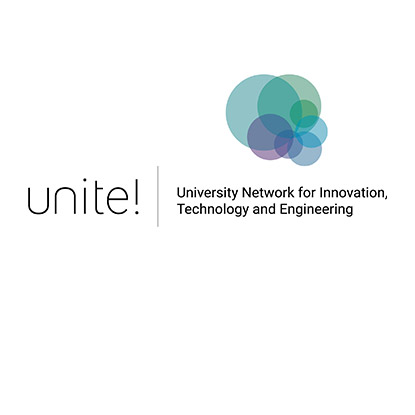Unite! fosters Open Science and builds network
Open Science Summer School at Aalto University
2022/09/15
One of the focus areas of the UNITE.H2020 project is the promotion of open science. Open science is transparent and accessible knowledge that is shared and developed through collaborative networks. It involves sharing ideas, data, methods and results with local, national, regional and global collaborative networks of research participants. It also goes beyond this to encompass the production and use of this scientific knowledge among these collaborative networks.

“Open science is not a fancy tech slogan. It implies new philosophical, sociological, and organizational principles, practices and goals for conducting research and innovation in the digital era. It brings about a new role for researchers. We are exploring the present of a new institution of science in the digital era, to build our open and democratic future as European Universities”, explains Rubén Vicente-Sáez, leader of Work Package 'Creating a High Impact European Open Science and Innovation University'.
Open science trainings attract a record amount of participants
Anne Sunikka, Head of Open Science and ACRIS Unit at Aalto University, introduced Aalto’s open science and research services and talked about how open science has evolved in Finland. In 2014 when Aalto introduced its open access policy only 13% of publications were open access, today the number is already close to 80%. Currently Aalto’s research services focus strongly on training. Enrico Glerean, Staff Scientist & Data Agent, explained how they offer a series of research data management and open science trainings that are open for anyone to attend. The trainings have gathered thousands of participants from all over the world. Recordings of the trainings are also openly accessible to everyone here.
Walk and talk in the nature
By exploring the nearby nature reserve by foot, the Summer School participants had an opportunity to explore, exchange and network on how open science support services for research communities are being promoted and articulated in each partner university. The group visited multiple infrastructures at Aalto University supporting open science, like Biofilia. Victoria Kang, Biofilia Lab Manager, presented how Biofilia provides artists, researchers, students and scholars with the ability to engage with the life sciences and their applications within an artistic and cultural context, thus making creative and critical links between biosciences, engineering and the arts.
The best practices will be shared later this year in the form of an open science handbook. It will be a very practical guide targeted to both researchers, university managers and national policy makers.
Unite!/mho
Recommended external content
We have selected external content from YouTube for you and would like to show it to you right here. To do this, you must reveal it with one click. You can hide the external content at any time with another click.
I agree to external content from YouTube being shown to me. This may result in personal data being transmitted to third-party platforms. You can find more information in our Privacy Policy.
The European Universities Initiative
The European Universities Initiative was launched in 2019 to push for the establishment of a European Education Area by 2025. European Universities are transnational alliances of higher education institutions from across the EU that share a long-term strategy, promoting European values and identity. The initiative is designed to significantly strengthen student and staff mobility and to foster the quality, inclusion and competitiveness of European higher education.
In response to a first call of the Erasmus+ Programme in 2019, the first 17 alliances were selected for a 3-year pilot phase to lay the foundations for future European universities. Unite! has been among these first 17. Another 24 alliances followed in the 2nd call in 2020.
Unite!’s new funding starting end of 2022 falls into the calls of the further roll out of the European Universities Initiative. It plans to increase the number of European Universities to 60 with more than 500 universities by mid-2024, supported under Erasmus+ with an indicative budget of EUR 1.1 billion for the period 2021-2027. The aim is to develop and share a common long-term structural, sustainable and systemic cooperation on education, research and innovation, creating European inter-university campuses where students, staff and researchers from all parts of Europe can enjoy seamless mobility and create new knowledge together, across countries and disciplines.”

